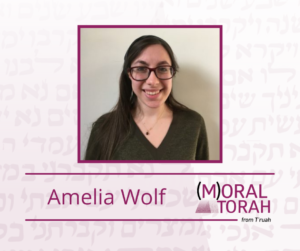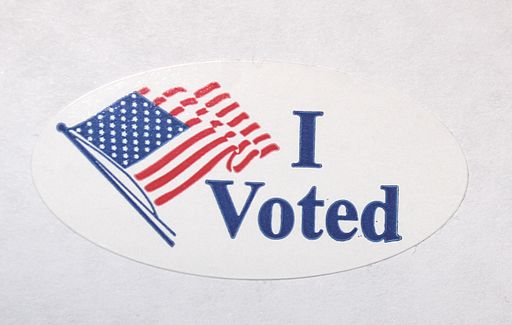A D’var Torah for Parshat Vayakhel-Pekudei by Amelia Wolf
When I called and texted people for get out the vote efforts in the fall of 2020, one of the saddest responses I would get was, “I can’t vote. I’m a felon.” Followed closely by, “I can’t get to my polling place. Do you know who can drive me?” and “My ballot was thrown out last time. It was something about my signature. Will it be counted this time?”
Seven years after the Voting Rights Act was partially struck down, people lined up to vote and were turned away. They found their names purged from rolls, their identification suddenly insufficient, or simply found that their polling place was no longer there at all.
Quietly and insidiously, federally and state-wide, elected officials have set up hurdles to voting designed to trip up our most vulnerable populations. Before the ballots are counted, they can feel safe in their offices, knowing that the people who might have voted for change never had a chance to turn in a ballot at all.
Sign up to receive Moral Torah in your inbox each week.
We call our Capitol the “Temple of Democracy,” and we slam its doors in the faces of those who would bring their offerings. But as our sages say, “How different are the ways of God from those of flesh and blood!”
In Parshat Vayakhel, God tells Moses to instruct all of Israel on how to contribute to the building of their own transient temple, the Mishkan, the sacred dwelling-place of God. “Take from among you gifts for God, anyone whose heart is moved will bring gifts of God” (Exodus 35:5).
Anyone whose hearts move them. Anyone at all who contributes and works toward this project, as if existing in the community itself implied a sort of pre-registration to vote. And so while the act of construction itself was voluntary, since everyone was invited, everyone contributed.
They brought “gifts for God” and “gifts of God.” תרומה לה׳ and תרומת ה׳. Note the two different phrasings, as language in the Torah cannot be superfluous. Each phrase must have a separate meaning even when the referent, the contributions themselves, are the same.
The gifts the Israelites gave, they gave as gifts for God. But what they were able to give had been given to them first. They gave the gifts of God, the gifts that God had already bestowed, upon them and in the world. Just as they were taking ownership of themselves, they were taking stock of what they had, to build a new home for God, of God, in partnership with God.
Find more commentaries on Vayakhel-Pekudei.
Precious metals and hides, woods and oils. And skills! Weaving and carpentry, spinning and smithing. Everyone wanted to give, and so everyone was called to give. Or perhaps, to put it another way, because everyone was called to give, everyone wanted to give. The Torah relates that “all those whose hearts lifted them” came to contribute (Exodus 35:21). Ramban, the 13th century Spanish commentator, teaches that this refers to the artisans and the crafts-people who, now that they had the opportunity to use them, found that the skills they needed rose up inside them, their God-given gifts giving them the opportunity to make gifts for God.
The gifts were representations of the people themselves, eager and diverse and quick to demand a stake in the future of their own nation, after generations of enslavement, of being kept at the margins of where they lived.
As it turns out, when you knock down the walls you’ve built around your society, you begin to make room for all the people who were already living inside those walls to begin with.
A society that makes space for the Divine in its midst is a society that doesn’t just permit everyone to participate. It’s a society that invites them to. When we make room for everyone, we make room for God to dwell among us, and when we shut people out, we shut God out alongside them.
 If we want our vaunted “Temple of Democracy” to contain actual holiness, it means we all must be able to build it up. That means tearing down the hurdles designed to trip up the marginalized among us; it means mailing out ballots to everyone registered; it means registering people to vote as soon as they are old enough in an act of explicit invitation.
If we want our vaunted “Temple of Democracy” to contain actual holiness, it means we all must be able to build it up. That means tearing down the hurdles designed to trip up the marginalized among us; it means mailing out ballots to everyone registered; it means registering people to vote as soon as they are old enough in an act of explicit invitation.
How different are the ways of God from those of flesh and blood! Human beings may deny people their ability to join in the sacred act of shaping a just society, but God calls on everyone whose hearts so move them to participate.
Amelia Wolf is a third year rabbinical student at JTS and an organizing fellow at Dayenu: The Jewish Call for Climate Justice. She lives in Brooklyn, NY, is one of the co-founders of Minyan Atara in Crown Heights, and is an alumna of the T’ruah Israel Fellowship.

